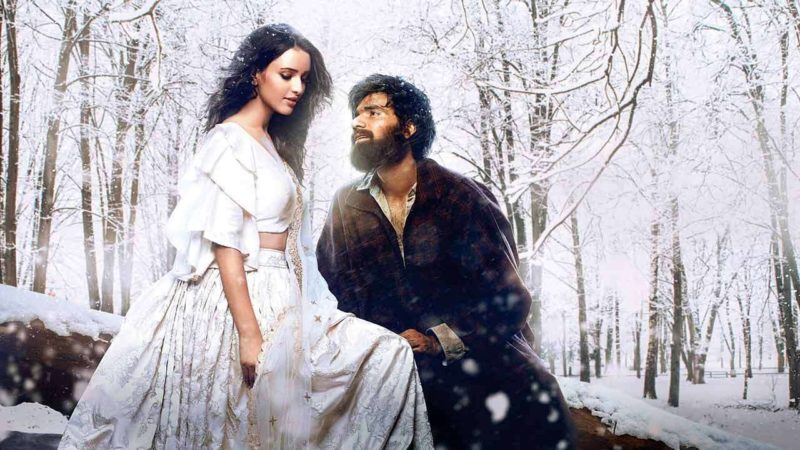Laila-Majnu, Romeo-Juliet, Heer-Ranjha, Shirin-Farhad – these are the names of some mythical couples whose names have become firmly entrenched in our collective consciousness because of the countless times they have appeared in popular culture in different forms. The epic romance of Romeo and Juliet, in particular, has caught the imagination of several filmmakers across the globe. In the recent times, films like ‘Ishaqzaade’, ‘Issaq’, ‘Goliyon Ki Raas Leela Ram Leela’ have derived their basic plot from this timeless tale of romance and tragedy. The romance of Laila and Majnu has also been captured a number of times in different films. Sajid Ali, younger brother of director Imtiaz Ali, who had earlier directed a film called ‘Banana’ which never released, helms a contemporary take on the much celebrated love of Laila and Majnu.
Laila (Tripti Dimri) comes from a family headed by her father Masool (Parmeet Sethi), who feels their land has been wrongfully usurped by a family whose patriarch Ghulam Sarwar Bhat (Benjamin Gilani) happens to be the father of Kaes Bhat (Avinash Tiwary). Laila loves all the attention she gets from the men in the town but gets taken aback when she is pursued by Kaes. After being in denial about her feelings for a while, she confesses to Kaes that she, too, is in love with him. The two of them dream of spending their life together but all hell breaks loose when their families get to know about their affair and strongly object to it.
The film follows the beats of a regular love story and does not have much to offer in terms of novelty. The fact that the film is set in Kashmir and has one of the principal characters playing the role of a politician gets one hopeful about the film exploring the socio-political climate of the troubled paradise. That does not really happen here and one cannot help but say that Sajid missed out a very good opportunity to put his Laila and Majnu amidst one of the biggest issues in the country which has persisted for several decades now. A lot of things in the second half, like the reason and the motivation behind Kaes/Majnu losing his mind and inching towards insanity, does not come across as very convincing. I had a similar issue with the way Ranbir behaved towards the latter portions of ‘Rockstar’.
The film’s major strength lies in the fact that it brings to the fore the intensity of the romance and tis consequences very effectively. Even when the story goes a little awry, the scenes have enough meat in them to hold your attention. The first half passes off like a breeze. You can predict the next scene easily but Sajid’s deft direction makes every moment very enjoyable. It is the second half which most people will have issues with. The question as to why Laila and Kaes are not being able to be together, despite a major incident happening and making things easy for them, is unfathomable. The film has the best music (Niladri Kumar and Joi Barua) one has heard in any Hindi film this year. The songs have been used very well in the film too – except for “O’ Meri Laila”, a happy and spirited number which arrives right after the film concludes with an intense climax.
Avinash Tiwary, whose performance I enjoyed in the TV show ‘Yudh’ and the much under-appreciated film ‘Tu Hi Mera Sunday’, is first-rate as Kaes/Majnu. His performance is, in fact, one of the strong pillars which the film stands on. Tripti Dimri looks every bit of the character she is expected to portray. Though she comes across as a little raw in a few scenes, she gives a good account of herself. Sumit Kaul, who has played small parts in a couple of films in the past, is terrific as Ibban. His evil act is bound to get noticed by a lot of people. Parmeet Sethi deserves to be seen in a lot more films. Benjamin Gilani is dependable as always. Sahiba Kaul leaves a mark as Laila’s sister.
Though Sajid Ali had made a film earlier, ‘Laila Majnu’ is his first official release as a director. He does a very fine job as a debut director. One just hopes he comes armed with a more polished script the next time around.

